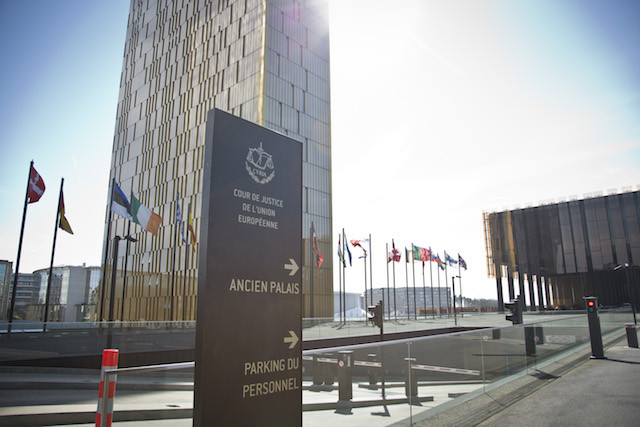Two separate cases had been brought to the ECJ within the context of the EU directive on equal treatment in employment and occupation. Both argued that the women had faced discrimination because they were wearing a hijab at work.
Beyond these cases, the decision will serve as a reference point for private employees and employers in the EU. However, national judges have certain room for discretion, in particular with regards to the legitimacy of the objective of neutrality which companies can invoke to ban the wearing of religious symbols.
First ruling
The first case was a woman in Belgium who had not worn a hijab during the job interview for the post of receptionist for a company specialising in surveillance and security. Three years later, she told her employer that she wanted to wear the hijab. The company had told her previously that it operated on a policy of neutrality which prohibited all signs of political, philosophical or religious affiliations. The Court of Cassation in Belgium questioned whether the prohibition on wearing an Islamic headscarf, which arises from a general internal rule of a private undertaking, constitutes direct discrimination.
The ECJ issued the following preliminary ruling:
“The Court therefore concludes that the prohibition on wearing an Islamic headscarf, which arises from an internal rule of a private undertaking prohibiting the visible wearing of any political, philosophical or religious sign in the workplace, does not constitute direct discrimination based on religion or belief within the meaning of the directive.
By contrast, such a prohibition may constitute indirect discrimination if it is established that the apparently neutral obligation it imposes results, in fact, in persons adhering to a particular religion or belief being put at a particular disadvantage.
However, such indirect discrimination may be objectively justified by a legitimate aim, such as the pursuit by the employer, in its relations with its customers, of a policy of political, philosophical and religious neutrality, provided that the means of achieving that aim are appropriate and necessary. It is for the Belgian Court of Cassation to check those conditions.”
Second ruling
The second case concerned the dismissal of a Muslim woman who was employed as a design engineer in a French company. She was told that the wearing of an Islamic headscarf might pose a problem when she was in contact with customers of the company. She subsequently wore an Islamic headscarf at work and got a permanent contract at the end of her internship. However, a client complained about her wearing it during a meeting and asked her not to wear it the next time. Her employer transmitted this request to the employee and she refused. She was fired subsequently.
The French Court of Cassation asked whether the willingness of an employer to take account of the wishes of a customer no longer to have that employer’s services provided by a worker wearing an Islamic headscarf may be considered a “genuine and determining occupational requirement” within the meaning of the directive.
The ECJ ruled that it cannot be considered a genuine and determining occupational requirement:
“The Court of Justice points out that it is only in very limited circumstances that a characteristic related, in particular, to religion may constitute a genuine and determining occupational requirement, a concept which refers to a requirement that is objectively dictated by the nature of the occupational activities concerned or of the context in which they are carried out and does not cover subjective considerations, such as the employer’s willingness to take account of the particular wishes of the customer.”
In other words, the court of cassation was wrong to validate the dismissal.
The cases return to national courts in Belgium and France for final adjudication.
Luxembourg proposes ban of burqa
Separately, the grand duchy’s coalition government has proposed a law which would make it illegal to hide one’s face in public spaces.
Despite the absence of any reliable statistics on actual numbers, the issue has flared up repeatedly over the past decade.
The coalition government, composed of the liberal DP, the social-democratic LSAP and the Greens, has proposed introducing a law which would essentially ban the burqa. Prime minister Xavier Bettel (DP) had suggested keeping this decision at local level, where it is currently regulated. Previously, the ADR and the CSV demanded such a ban.
The DP, but especially the Greens, have so far been sceptical but they all seem to have come to an agreement. The Greens had their party meeting on Saturday and found a consensus. The proposed law will specify that the reason is to ban any clothing which would make identification impossible.
